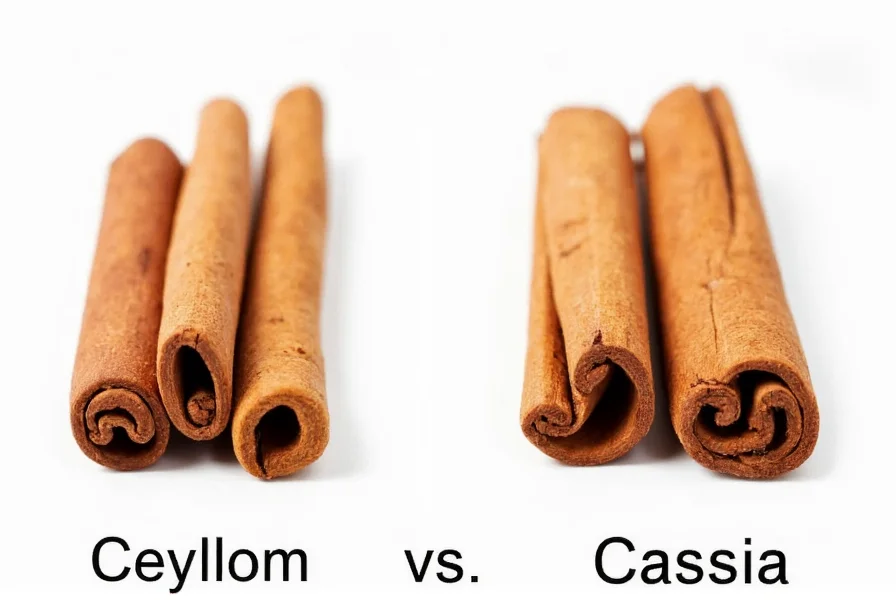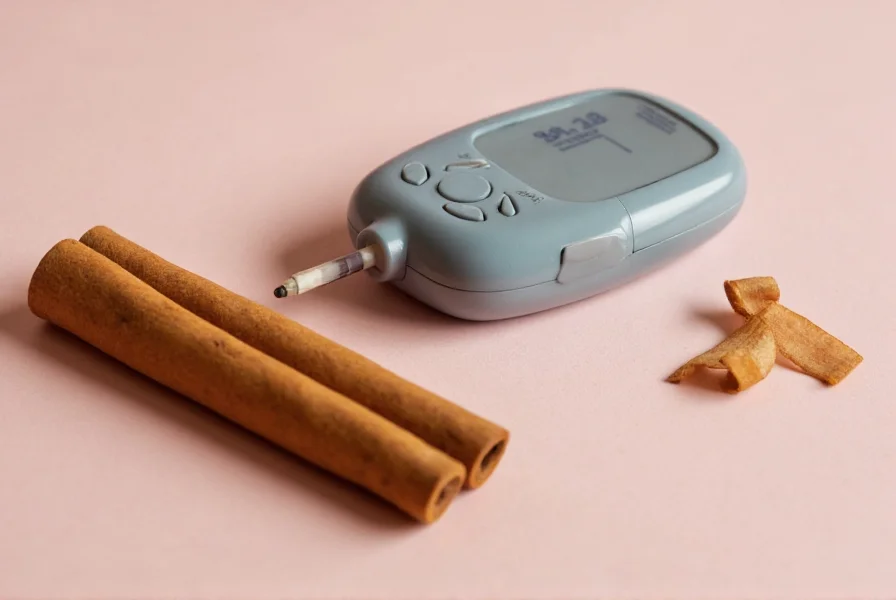For decades, people have turned to cinnamon as a potential natural aid for blood sugar management. This warm, aromatic spice has moved from kitchen cabinets to clinical research labs as scientists investigate its potential effects on glucose metabolism. Understanding the relationship between cinnamon consumption and blood glucose regulation requires examining both traditional uses and modern scientific evidence.
The Science Behind Cinnamon and Blood Sugar
Research suggests cinnamon contains bioactive compounds that may influence glucose metabolism through several mechanisms. The primary components believed to affect blood sugar include cinnamaldehyde, polyphenols, and other antioxidants. These compounds appear to enhance insulin sensitivity, slow gastric emptying, and potentially mimic insulin activity at the cellular level.
A comprehensive 2022 meta-analysis published in Nutrition Reviews examined 16 randomized controlled trials involving over 1,200 participants with type 2 diabetes. The analysis found that cinnamon supplementation (typically 1-6 grams daily for 8-12 weeks) resulted in modest but statistically significant reductions in fasting blood glucose levels compared to placebo groups. The average reduction was approximately 15-25 mg/dL, though individual responses varied considerably.
Ceylon vs. Cassia: Understanding Cinnamon Types
Not all cinnamon is created equal when considering blood glucose management with cinnamon. Two primary varieties dominate the market:
| Type | Characteristics | Coumarin Content | Recommended for Blood Glucose Support |
|---|---|---|---|
| Ceylon Cinnamon | "True" cinnamon, lighter color, delicate flavor | Very low (0.004-0.13%) | Preferred for regular, long-term use |
| Cassia Cinnamon | Common grocery store variety, stronger flavor | High (2.15-6.97%) | Limited use due to coumarin concerns |
The critical difference lies in coumarin content—a compound that can cause liver damage in sensitive individuals at high doses. Cassia cinnamon contains significantly higher levels of coumarin than Ceylon. For those considering cinnamon supplementation for blood sugar control, Ceylon is generally recommended for regular consumption.

What Clinical Research Reveals
Multiple studies have investigated cinnamon's effects on various blood glucose markers:
- A 12-week trial with 130 participants with type 2 diabetes found that 3 grams of cinnamon daily reduced fasting plasma glucose by 24.57 mg/dL compared to placebo
- Research published in the Journal of the Academy of Nutrition and Dietetics showed cinnamon supplementation improved HbA1c levels after 90 days
- Studies examining cinnamon's effect on insulin resistance suggest it may improve insulin sensitivity by up to 20% in some individuals
However, research isn't uniformly positive. Some studies show minimal effects, particularly in healthy individuals without insulin resistance. The American Diabetes Association notes that while cinnamon shows promise, current evidence doesn't support recommending it as a primary treatment for blood glucose management.
Practical Considerations for Blood Glucose Support
For those interested in exploring cinnamon for natural blood sugar regulation, several factors deserve attention:
Dosage Guidelines
Most clinical studies showing benefits used between 1-6 grams daily (approximately ¼ to 1½ teaspoons), typically divided into multiple doses. Starting with lower doses (1-2 grams daily) and monitoring blood glucose response is advisable.
Safety Profile
Cinnamon is generally safe when consumed in culinary amounts. However, high doses of Cassia cinnamon over extended periods may pose risks due to coumarin content. People with liver conditions should exercise particular caution. Cinnamon may also interact with certain diabetes medications, potentially enhancing their effects and increasing hypoglycemia risk.

Realistic Expectations
While some individuals report noticeable improvements in blood sugar control with cinnamon, results vary significantly. Cinnamon should be viewed as a potential complementary approach rather than a replacement for established diabetes management strategies including medication, diet, and exercise.
Integrating Cinnamon into a Blood Sugar Management Plan
For those interested in incorporating cinnamon for supporting healthy blood glucose levels, consider these practical approaches:
- Add ½-1 teaspoon of Ceylon cinnamon to morning oatmeal or smoothies
- Use cinnamon in place of sugar in coffee or tea
- Incorporate into savory dishes like roasted vegetables or lean protein marinades
- Consider standardized cinnamon extract supplements if consistent dosing is important
Monitoring blood glucose levels before and after incorporating cinnamon can help determine individual response. Those taking diabetes medications should consult their healthcare provider before adding cinnamon supplements, as medication adjustments may be necessary.
Limitations of Current Research
While promising, research on cinnamon's impact on blood glucose regulation has several limitations:
- Most studies have relatively small sample sizes
- Study durations are typically short-term (8-16 weeks)
- Significant variation exists in cinnamon types, dosages, and preparation methods
- Long-term safety data for therapeutic doses is limited
- Individual responses vary considerably based on genetics and health status
More large-scale, long-term studies are needed to fully understand cinnamon's role in comprehensive blood glucose management strategies.
Conclusion: A Complementary Approach
Current evidence suggests cinnamon may offer modest benefits for blood glucose control, particularly for individuals with type 2 diabetes. The effects, while statistically significant in research settings, are generally modest compared to pharmaceutical interventions. Ceylon cinnamon represents a safer option for regular consumption due to its lower coumarin content.
Those interested in using cinnamon for supporting healthy blood sugar levels should view it as one component of a comprehensive approach that includes medical care, appropriate medication, balanced nutrition, and regular physical activity. Consulting with a healthcare provider before making significant changes to diabetes management is always recommended.
Does cinnamon lower blood sugar immediately after consumption?
Cinnamon does not lower blood sugar immediately. Research shows effects typically develop over weeks of consistent use. Some studies note modest improvements in postprandial glucose when cinnamon is consumed with meals, but significant immediate effects aren't supported by current evidence.
How much cinnamon should I take daily for blood sugar control?
Most clinical studies showing benefits used 1-6 grams (approximately ¼ to 1½ teaspoons) of Ceylon cinnamon daily, typically divided into multiple doses. Start with lower doses (1-2 grams) and monitor your response. Consult your healthcare provider before beginning any supplementation regimen.
Can cinnamon replace diabetes medication?
No, cinnamon should not replace prescribed diabetes medications. While research shows modest benefits for blood glucose control, cinnamon's effects are significantly less than pharmaceutical treatments. It may serve as a complementary approach but should never be used as a substitute for prescribed diabetes management without medical supervision.
Is Ceylon cinnamon better than Cassia for blood sugar management?
Both types show similar potential benefits for blood glucose control, but Ceylon cinnamon contains significantly less coumarin than Cassia. For regular, long-term use, Ceylon is generally recommended due to its superior safety profile, especially for individuals with liver concerns or those taking medications that affect the liver.
How long does it take to see results from cinnamon for blood sugar?
Most clinical studies showing benefits required 8-12 weeks of consistent daily use before observing significant improvements in blood glucose markers. Individual responses vary, and some people may notice subtle changes sooner while others may not experience noticeable effects. Regular blood glucose monitoring is recommended to assess personal response.










 浙公网安备
33010002000092号
浙公网安备
33010002000092号 浙B2-20120091-4
浙B2-20120091-4